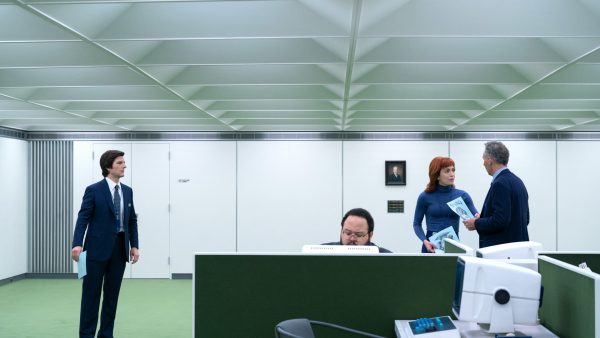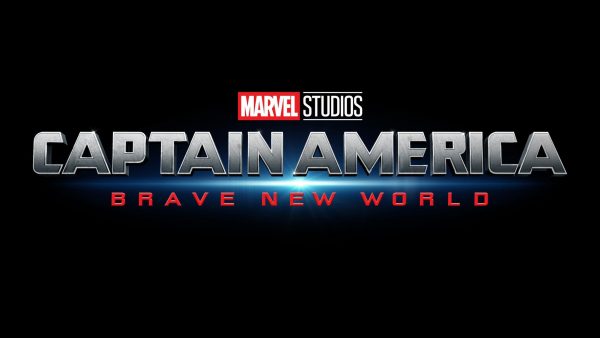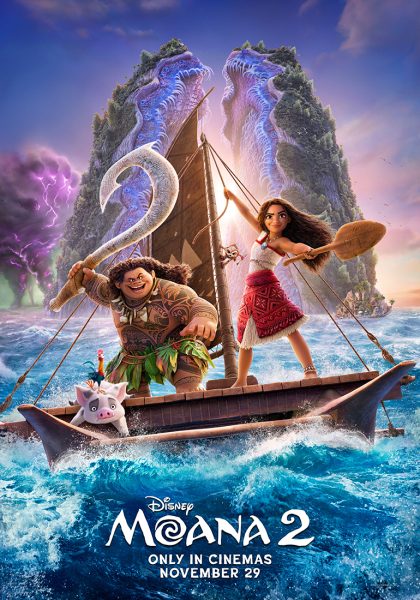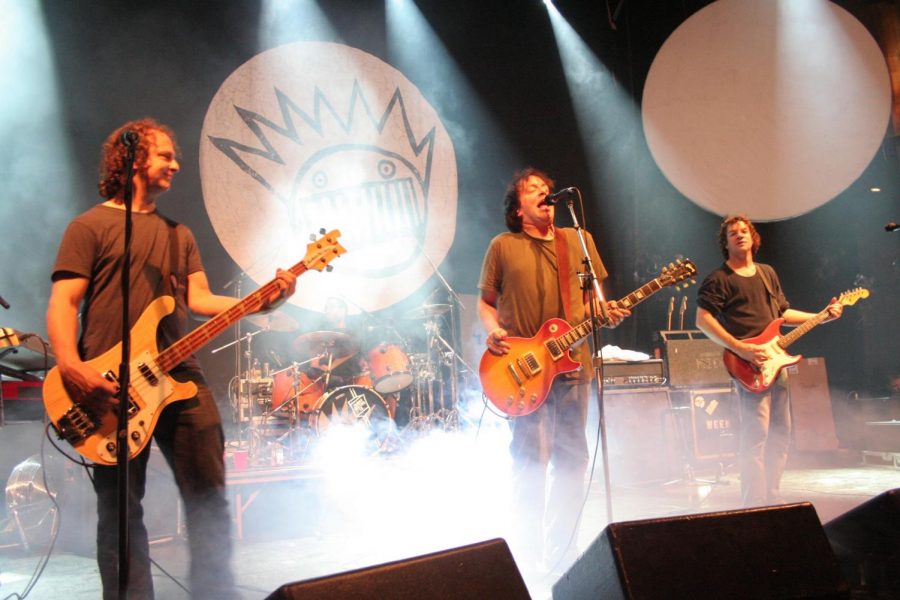Ween: Music’s Funniest Joke that Isn’t One
An overview of one of music’s first examples of mainstream art rock, a band’s music you’ve heard but don’t know the name.
Ween performs in Edmonton, Alberta, Canada on November 17, 2007.
Many people are familiar with the song that plays at the end of The Spongebob Squarepants Movie, called Ocean Man. A short, nonsensical tune with the narrator addressing the titular Ocean Man about various things. The song is upbeat, fast, and certainly doesn’t overstay its welcome. This song received international attention (and over 44 million streams on Spotify) after it became an internet meme in early 2016. What many may not be familiar with, however, is the people behind the song. Formed in 1984 by childhood friends Mickey Melchiondo Jr. and Aaron Freeman, the duo would receive a cult following that would garner the attention of the creator of Spongebob Squarepants, Stephen Hillenburg. This is their story.
As previously mentioned, Melchiondo and Freeman formed the band in 1984 after they met in a high school typing class. With both having an interest in professional music, the two started writing later that year and began to record on a home four-track tape machine. Their first album, GodWeenSatan: The Oneness, would be released in November 1990. This album almost hurts the ears due to the production and composition, and for this very reason, immediately stirred up a following among late teens and early adults. Melchiondo and Freeman would also adopt their stage names, Dean Ween and Gene Ween respectively, during this period. The album can best be described as alternative, however this really does not do it justice. The record features elements of metal, folk, avant garde and more, all while keeping a (somewhat) cohesive feel. The abrasive, raw sound this album has to it has been given a name, “brown,” by the Ween members and fanbase. You will find that most of their early material features this “brown” production style, as Ween didn’t have enough money to rent space in a professional recording studio. They also had very few instrumental talents, as Melchiondo was mainly guitar and Freeman was songwriting and vocals. They needed money and members, and they worked hard to get it.
In 1994, the band would release their first studio album Chocolate and Cheese, regarded by many as a classic. This album lacks the “brown” sound of earlier records, having more polished finishes now that they have gained a producer, more members, and better recording equipment. The album is their most diverse yet, and one of the most diverse of their entire discography. The album ranges from country to industrial, and pretty much touches everywhere in between. Notable tracks include “Voodoo Lady,” a wah-filled, bayou-style jaunt about a manipulative love interest, “Freedom of ‘76,” a jazzy tune about 1776-era Philadelphia, and “What Deaner Was Talkin’ About,” a song Freeman wrote about Melchiondo’s nightmares and panic attacks. The album’s cover has become famous and often parodied, and the album’s contents are regarded by critics as classic and unforgettable.
A couple years later, Ween felt they had gone too far off the deep end. They wanted to limit themselves to see if they could train themselves to become better musicians, and limit themselves they did. In 1996, Ween would release their second studio album, an entirely country album called 12 Golden Country Greats. Despite this name, the album has 10 songs. The album was commercially successful, and became a favorite among the fanbase because it showcases the band’s ability to nail nearly every genre they try. Many artists produce what mainstream music critics call “pop country” or “bad country,” but Ween took this album to the next level and made a professional, enjoyable country record.
In 1997, the band would release their next classic and farthest reaching album yet, The Mollusk. This is the album that spawned the hit “Ocean Man,” as mentioned previously. This album is a concept album with a dark nautical theme, with recurring images of the ocean, pirates, and sea creatures being mentioned frequently. The album ranges from the playful piano tune “I’m Dancing in the Show Tonight” to the literal sea shanty “The Blarney Stone.” The album ends with “She Wanted to Leave,” a somber ballad about a pirate’s beloved ship being stolen by other pirates. The song ends with the sound of wind, and fades into a short reprise of the first track.
After a couple also successful albums the band hit some troubled times. Freeman had become tired of his Gene Ween persona, and had become the victim to several drug addictions and criminal situations. Freeman publicly announced his departure from the band in 2012 after the release of their most recent album La Cucaracha, to focus on rehab and becoming sober. Fans questioned the possibility of the group’s reunion, but became hopefully after Freeman returned to the music industry in 2015 and started using the name Gene Ween for small performances. First in several solo performances, such as Gene Ween Does Billy Joel, then in their first reunion concert in 2016. Having initially planned for this concert to be a one-off, unanimous appeal from fans lead to more and more dates being announced, and Ween is still on tour to this day. However, it is unknown if any studio material is going to be released any time soon.
Ween is an unusual case. When listening to the vast majority of their music, one could easily dismiss them as a “joke band.” This couldn’t be farther from the truth. While elements of humor and absurdist content is not uncommon in Ween music, this also comes with the fact that they can seemingly attempt any musical style and set the bar while they’re at it. For every “Bumblebee,” there’s a “If You Could Save Yourself (You’d Save Us All),” and for every “It’s Gonna Be (Alright),” there’s a “Tick”. If you want to laugh at Ween, you can, just as you can cry. In the words of Mickey “Dean Ween” Melchiondo, “Something really special happened here.”
Your donation will support the student journalists of Cypress Woods High School. Your contribution will allow us to purchase equipment and cover our annual website hosting costs.





Bobby N. Hotary • Mar 1, 2020 at 12:17 AM
Hey, it’s me, Bobby Hotary. I don’t know if my gravatar is working yet, we’ll see. Ha ha HA. Anyway, big fan of Ween here, my favorite album is Magical Mystery Tour. Very well written article! I didn’t think you had it in you, after seeing your other articles. Maybe one of these days you’ll write about something real and not just music, LOL! Anyway, see you around, Ryan!
3/1/2020